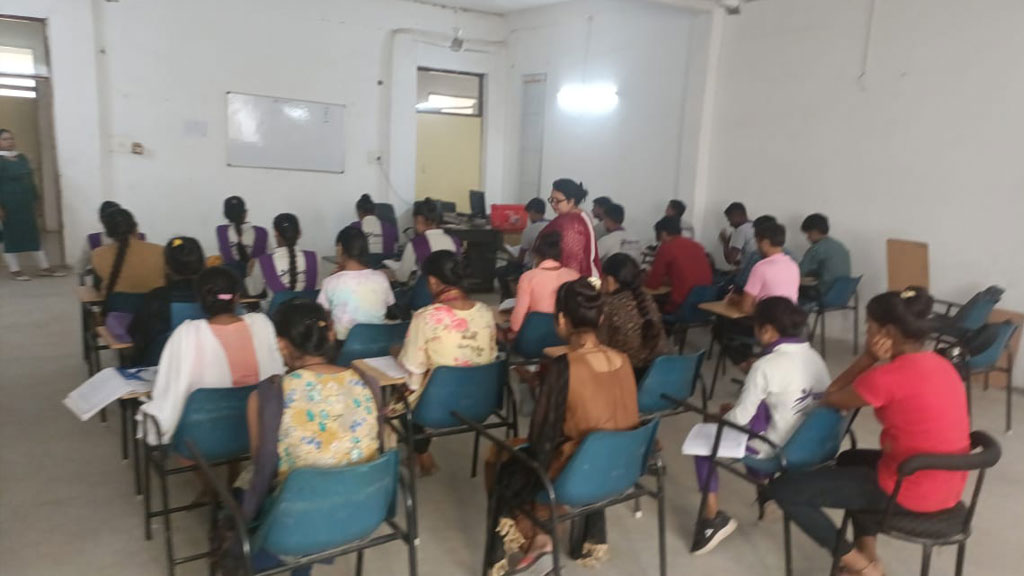In the evolving landscape of corporate responsibility, the role of corporations extends far beyond profit margins and market share. A paradigm shift is underway, with an increasing number of companies recognizing their role as drivers of positive change. Nowhere is this more evident than in the realm of education, where Corporate Social Responsibility (CSR) initiatives are steering impactful transformations. In this exploration, we delve into how CSR is a catalyst for driving change in education, paving the way for a more equitable and enlightened society.
A Shift in Corporate Consciousness:
The traditional view of corporations solely as economic entities is undergoing a transformation. Modern businesses understand that they are integral parts of the communities they operate in and have the power to drive positive change. This shift in consciousness has led to the emergence of CSR initiatives that actively contribute to societal well-being.
Investing in Educational Infrastructure:
One of the primary ways CSR drives change in education is through investment in infrastructure. Corporations recognize that a strong educational foundation requires adequate physical resources. Initiatives encompass building schools, classrooms, and libraries, creating an environment where learning can flourish.
Fostering Technological Advancements:
As technology becomes increasingly intertwined with education, CSR initiatives play a pivotal role in fostering technological advancements. From providing schools with modern learning tools to supporting initiatives that enhance digital literacy, corporations drive change by ensuring that students are equipped to thrive in the digital age.
Addressing Educational Inequalities:
Educational inequalities persist in various forms, from disparities in access to differences in the quality of education. CSR initiatives strategically target these inequalities, working to bridge gaps and create a more level playing field. This includes scholarship programs, support for underprivileged communities, and initiatives aimed at enhancing access for all.
Promoting Skill Development for the Future:
Driving change in education goes beyond traditional academic pursuits. CSR initiatives often focus on promoting skill development that aligns with the needs of the future workforce. By investing in programs that develop critical thinking, creativity, and adaptability, corporations contribute to a workforce that is well-prepared for the challenges ahead.
Empowering Teachers as Changemakers:
Recognizing the pivotal role of teachers in the educational ecosystem, CSR initiatives invest in empowering educators. Training programs, professional development opportunities, and initiatives that recognize and reward outstanding teachers are all ways in which corporations contribute to building a cadre of skilled and motivated educators.
Community Engagement and Collaboration:
Driving change in education requires active engagement with communities. CSR initiatives collaborate with local stakeholders, including parents, community leaders, and educational institutions, to understand specific needs and co-create solutions. This collaborative approach ensures that initiatives are contextual, relevant, and sustainable.
Environmental Education for Sustainable Citizens:
CSR initiatives extend their impact to areas beyond traditional academics, including environmental education. Corporations understand that education is not only about knowledge acquisition but also about fostering values and awareness. Initiatives that promote environmental education contribute to creating a generation that is environmentally conscious and responsible.
Measuring Impact and Accountability:
CSR initiatives in education are not just about good intentions; they are about measurable impact. Corporations deploy robust monitoring and evaluation frameworks to assess the effectiveness of their programs. This commitment to accountability ensures that resources are utilized efficiently and that initiatives lead to meaningful, tangible changes.
A Vision for the Future:
“Driving Change: Corporate Social Responsibility in Education” is a vision for the future where corporations actively contribute to building a society that values education as a cornerstone of progress. As businesses increasingly recognize their role in driving positive change, the narrative of education becomes one of empowerment, inclusion, and sustainable growth.
Conclusion:
In the grand story of societal progress, CSR initiatives in education are the protagonists of change. They are narratives of investment, empowerment, and collaboration. As corporations drive change through their commitment to education, they not only fulfill their social responsibility but also become architects of a future where knowledge is a transformative force, shaping individuals and communities for generations to come.
- By admin

